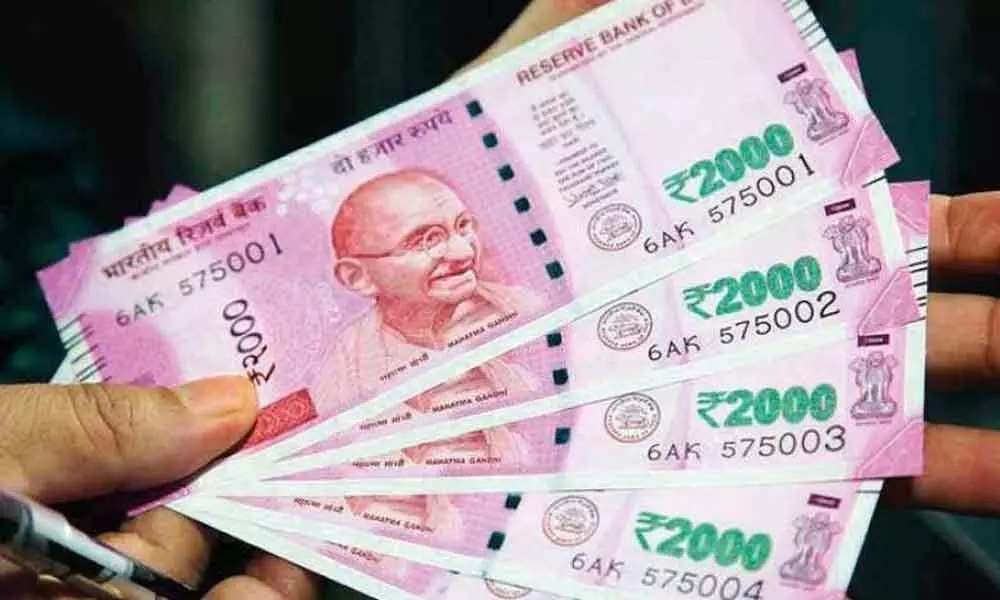Low interest rates will not beget growth

Low interest rates will not beget growth
The Reserve Bank of India (RBI) has continued its policy of low interest rates in the recently announced monetary policy. Commercial banks can continue to borrow monies from RBI at a low rate of 4 percent per annum. The average cost incurred by the banks in acquiring deposits, however, remains more than this because they have already taken fixed deposits from the public at higher interest rates. Thus, the average cost of acquiring deposits at present is about 7 percent. This average cost would have been higher if the RBI has increased the lending rates. The banks are presently lending at an interest rate of 9 to 10 percent. This lending rate would be higher if the RBI were to increase the interest rate from the present 4 percent.
The thinking is that the low interest rates would encourage consumers to take loans for consumption and encourage businesspersons to take loan for investment. For example, a consumer may take loan to buy a bike, and a businessperson may take loan to produce the bike. In this situation both consumption and investment will increase and wheel of the economy will start to move. This strategy, however, is dependent on the consumer and businessperson being encouraged by the low interest rates to and actually taking loans for consumption and investment. Our experience is not so encouraging on this. The RBI has continuously reduced the repo rate from 8 percent in 2014 to 4 percent now but the growth rate has been falling in tandem. This means that other factors are at play.
The alternative before the government was to use the fiscal policy for jumpstarting growth. The government could cut its "unproductive" expenditures such as increased salaries and DA to government servants and making a new parliament house. I consider these expenditures to be "unproductive" because the economy would continue to chug along even if these expenditures were not made. The government servants would not resign en masse if DA was not increased. The sitting of the parliament would not reduce if the new parliament house was not made. The Government could use the monies thus obtained to make direct cash transfers to the people or by investing in making water conservation structures like check dams. These cash transfer and expenditures would create demand in the market and the businessperson would make investment to fulfil that demand even if the interest rate was high. Let us not forget that high interest rates before 2014 were high at 8 percent yet businesspersons were borrowing to make investments.
The monetary and fiscal policies—both try to establish a fortuitous cycle of demand and investment. The monetary policy tries to build this cycle by encouraging the consumer to take a loan for consumption and the businessperson to take a loan for investment. The fiscal policy tries to build this same cycle by direct placing purchasing power in the hand of the consumer by cash transfers for doing the same by employing workers to make water harvesting structures.
There is a fundamental difference in the two policies, however. The government too borrows from the RBI at the low interest rates that are made for encouraging investments. The RBI has announced, for example, that it will provide loan of Rs 1 lakh crore in the present quarter to the government. The government is using this loan to maintain its consumption in these times of pandemic. The burden of this printing will fall on us in future because inflation will increase and the value of our currency will decline. In other words, the monetary policy begets us present benefits by putting burden on our future. The impact of fiscal policy is exactly the opposite. If the government reduces the salaries of the government servants or imposes higher tax on petroleum, the burden will fall on the government servants and the people today, while the benefits from the making of water harvesting structures will accrue in the future. For example, the government imposed taxes in the 1950s and established the IITs, the benefits of which have accrued in the next many decades. In this way, the fiscal policy puts burden on the present and begets benefits in the future.
The Covid-19 crisis does not seem to be going away anytime soon. The death rate appears to be reducing because of vaccination. However, the continued spread of the virus and its many mutations create an uncertainty. Therefore, the consumer is not likely to borrow for buying a bike; nor a businessperson is likely to borrow to put up a bike factory. The RBI policy is like offering low interest rates to a farmer during a severe drought. We should remember that banks in a number of countries like Japan have been offering loans to businesspersons at zero interest rates, yet businesspersons do not borrow because there is no demand in the market. The present approach is destined to fail as the continuous lowering of interest rates have failed in the last six years.
The government should instead use the fiscal instruments to jumpstart growth at present. It should reduce unproductive government consumption. A reduction in salaries of the government servants will not lead to much reduction in demand in the market because the government servants use much of their income for buying gold and making other unproductive expenditures. It should increase productive investments such as in water harvesting structures. It should increase taxes on imported goods so that more production and job creation takes place within the country. It should make cash transfers to the people to create demand in the market. The cash transfers will create a huge demand because these people are craving for consumption. The businesspersons will to take loans at a higher interest rate and establish a bike factory because demand for bikes will be generated in the market by these measures.
The present time is of crisis. We do not know how the Covid-19 pandemic will play out. This is not the time to make merry today by pawing our already difficult future by lowering the interest rates and maintaining already unsustainable levels of government consumption. This is the time to cut corners in the already difficult times and ensure a better future by cutting government consumption, increasing import taxes and on petroleum.
(The author is formerly Professor of Economics at IIM, Bengaluru)











